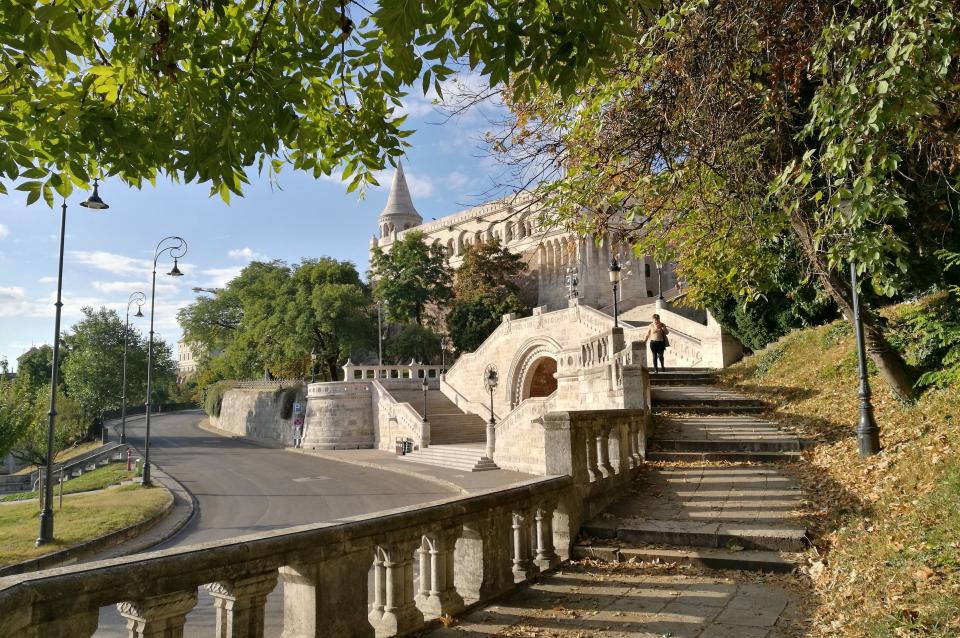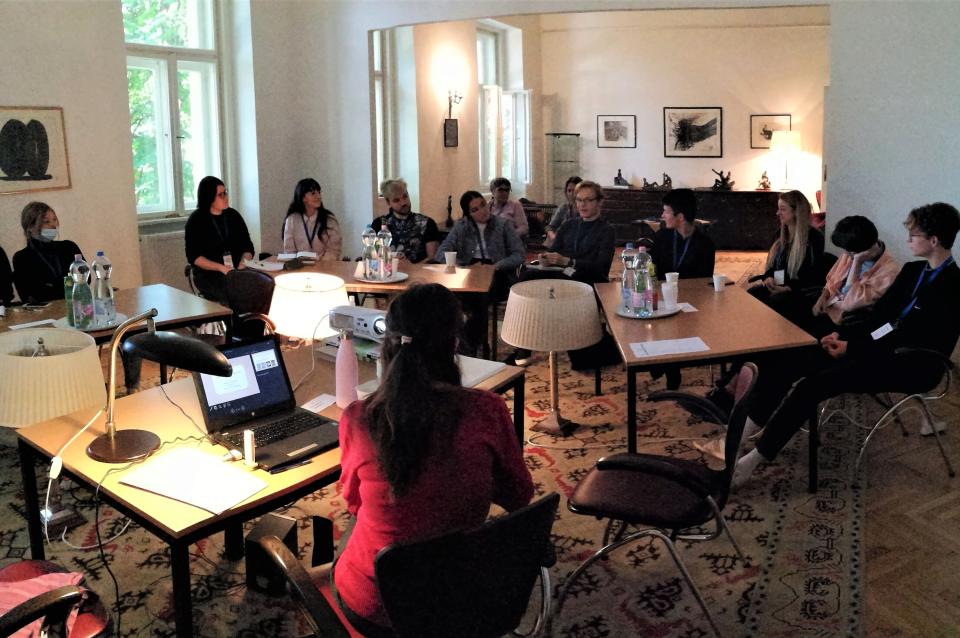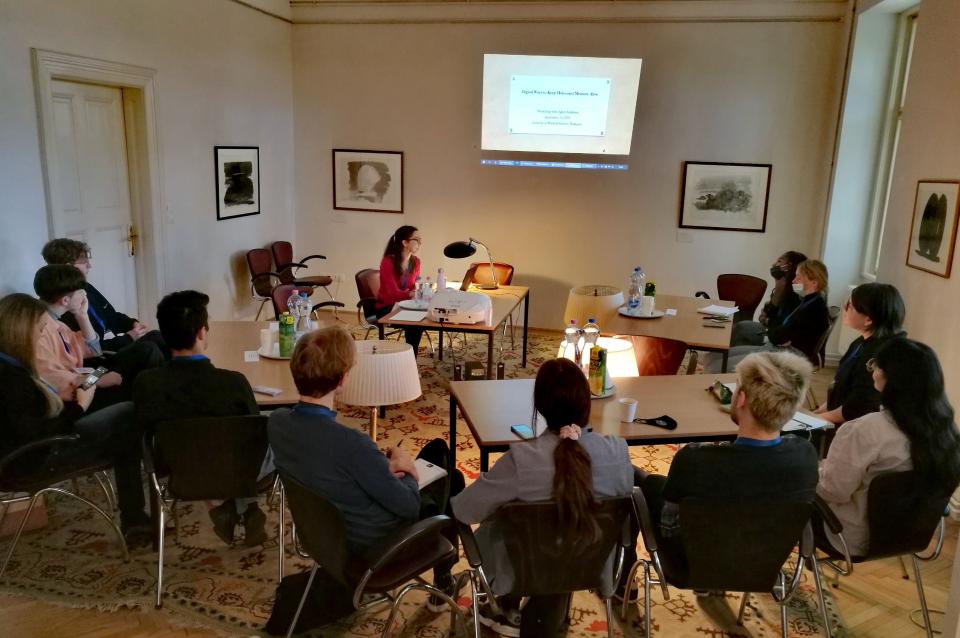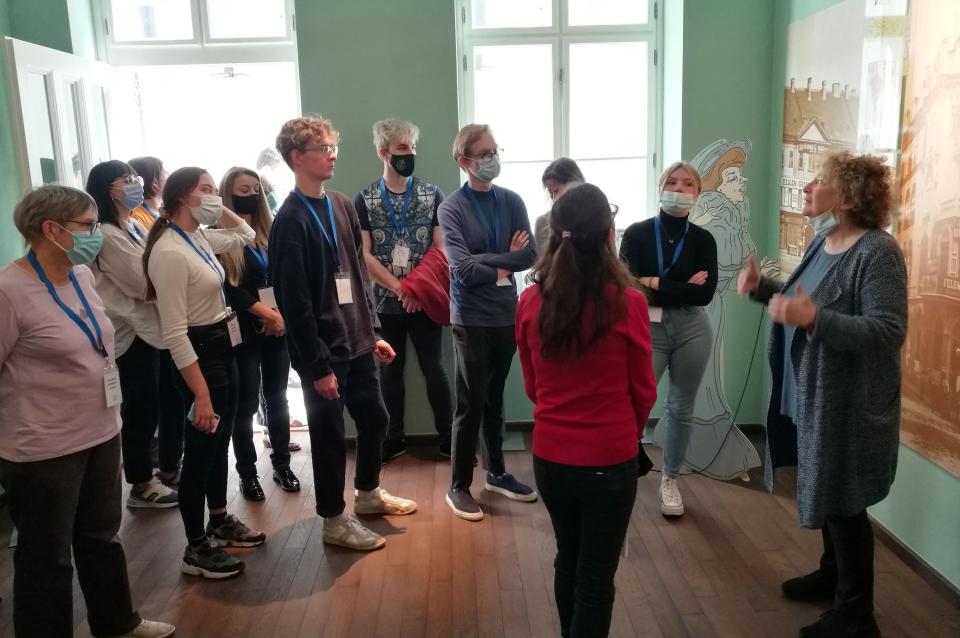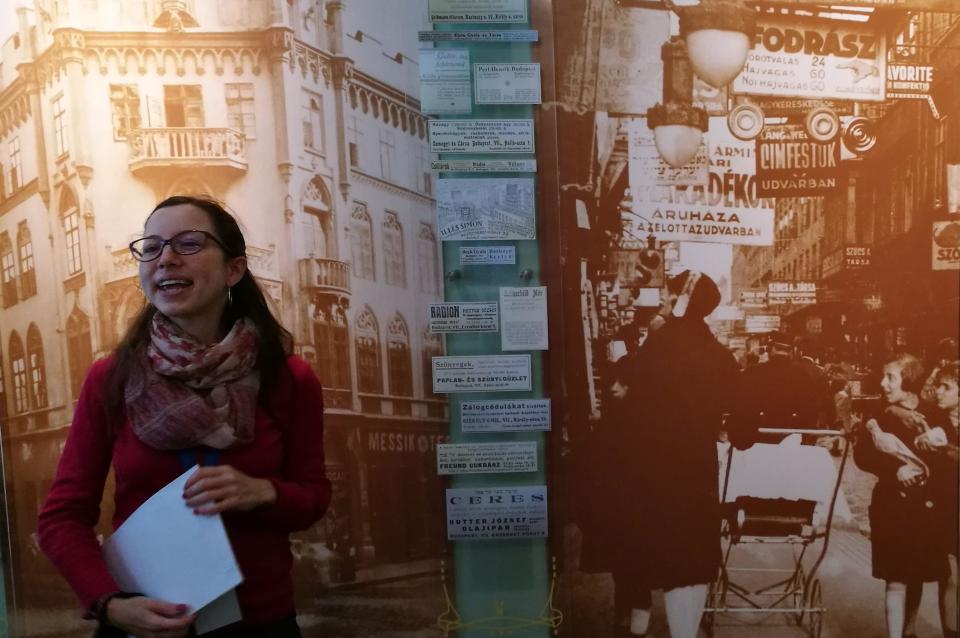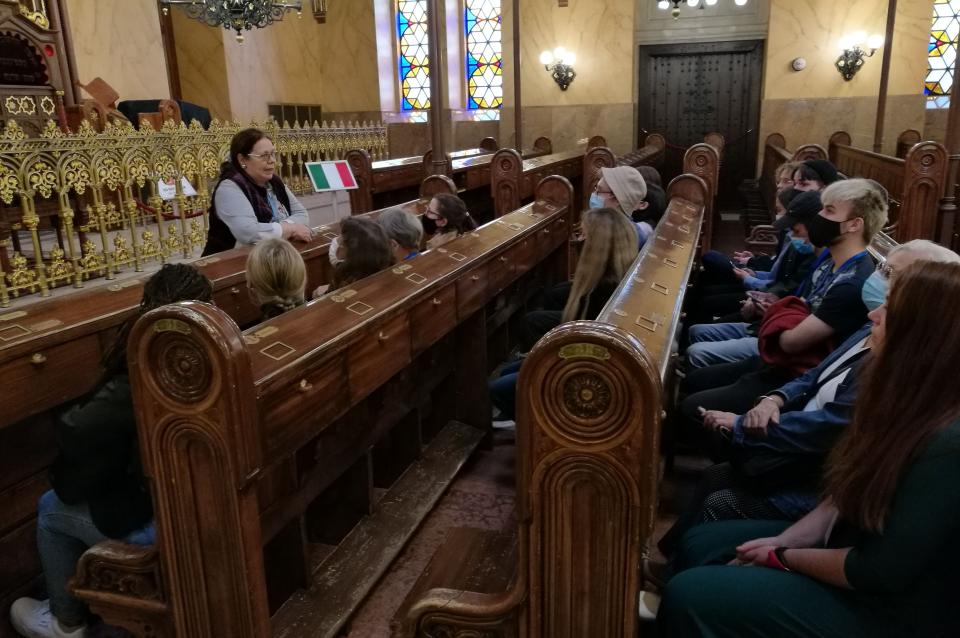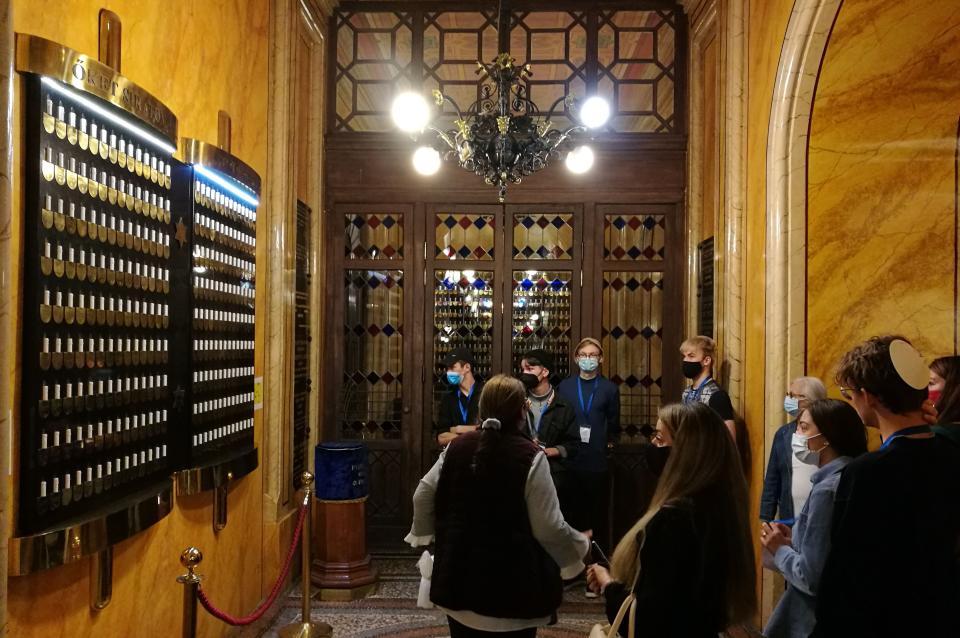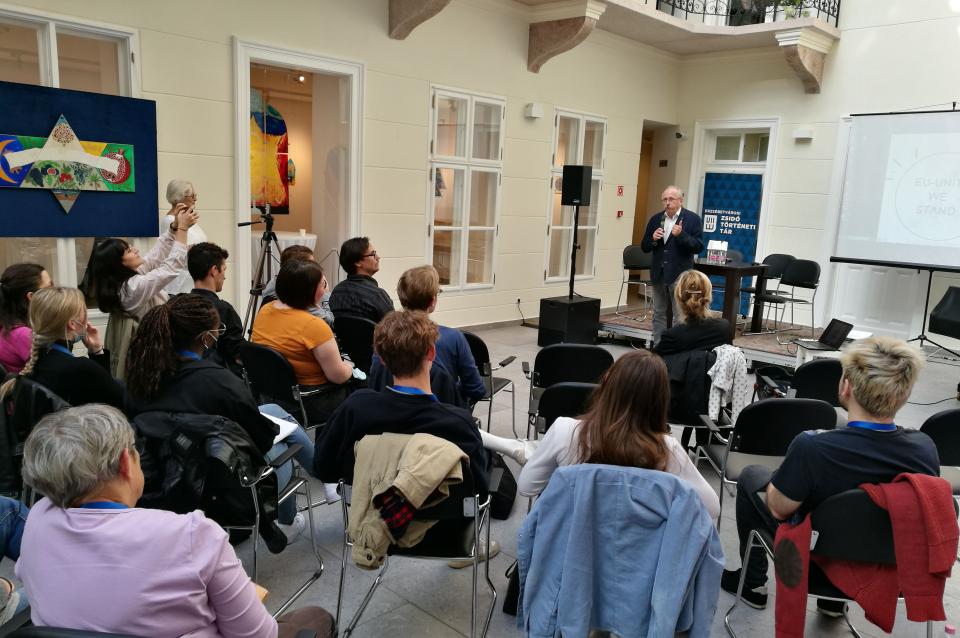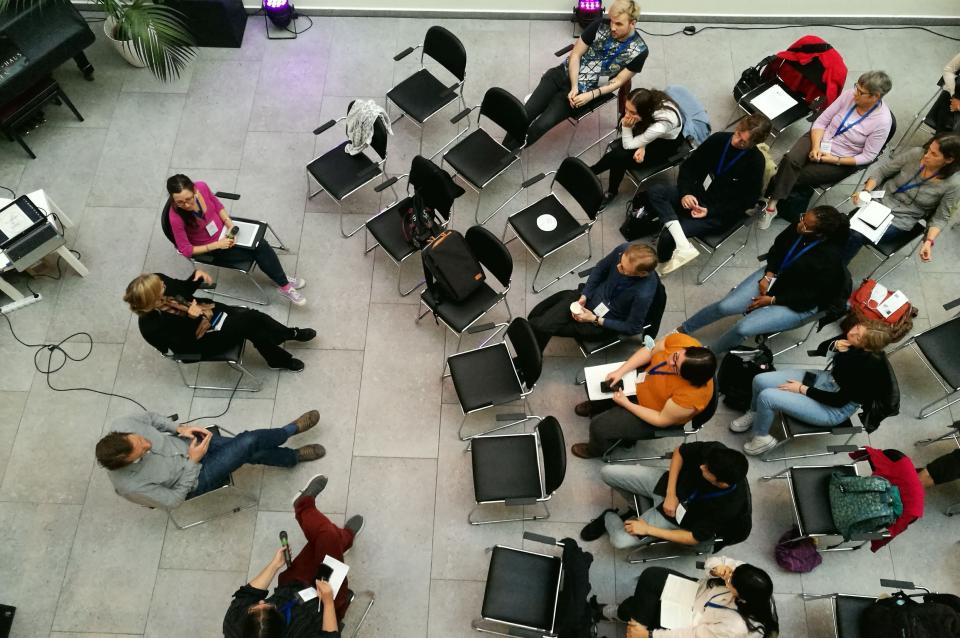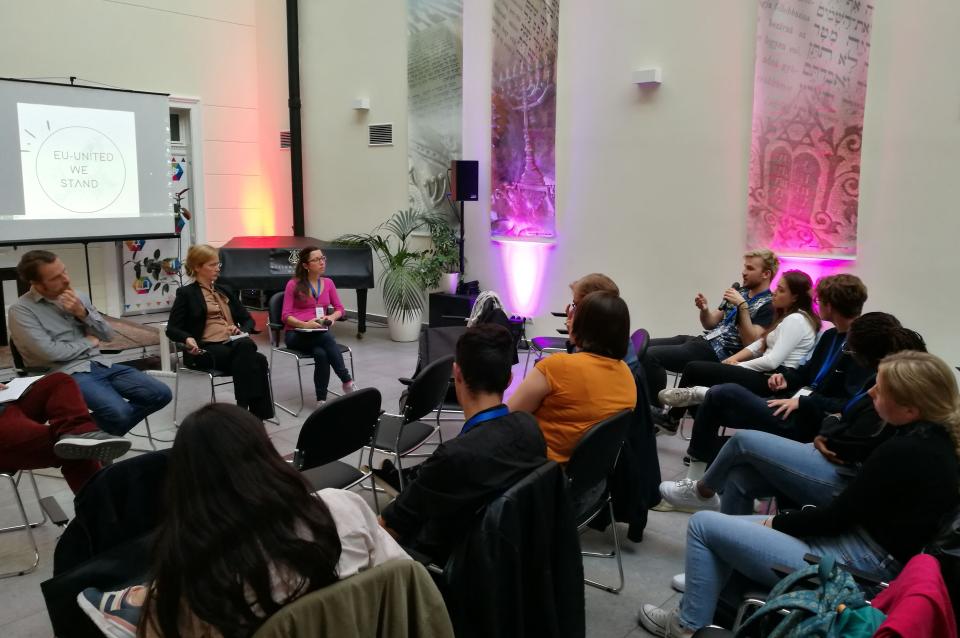Hungary
22-25 September, 2021: Commemorating the Holocaust, Hungary

As the politics of memory regarding the Holocaust played a significant normative role in the accession process of the post-communist countries, and the memory of the Holocaust is an especially salient issue in Budapest, we decided to organize our event around these issues: a critical lecture on the post-1989 politics of memory and contributions from fellow historians and memory activists, followed by a discussion with the audience.
In the frames of the event on 23 September we organized a workshop for the delegates about the activities on the history of the Holocaust in Hungary and its memory. After the workshop we visited the Jewish local history collection of Elizabethtown with a guided tour in the permanent exhibition. This museum offers an insight to the daily lives of the Jewish residents of Budapest and especially of this district, and we could see there different reconstructions of living and working spaces from the late nineteenth century to the troubled year of 1944. It was followed by the visit of the Dohány Street Synagogue and later by a lecture, roundtable and public discussion on Holocaust memory and EU accession. Sociologist Máté Zombory’s lecture on ‘Holocaust memory and political integration’ gave us an overview of the recent scholarly criticisms of three decades of memory politics. It focused on the case of EU integration policy which is based on a specific memory construction of the Holocaust. What role did memory politics play, if any, in the successive failures of EU integration policy such as, among others, the rise of right wing populism, the "migration crisis" or the Brexit? These questions were answered in the roundtable by our discussants. We closed the day with a dinner in a restaurant of the Jewish quartier where the participants could taste the typical Hungarian dishes. On 24 September the transnational event continued with a walking tour among the ‘Yellow-star houses’ which was followed by a visit of the Rumbach Street Synagogue. The program of the afternoon was the screening of a Hungarian-British documentary ‘Granny Project’. The film follows three grandsons who embark with their grannies on an anarchic journey into the past – a complex road movie about intergenerational dialogue in Great Britain, Germany and Hungary. It's a coming of age story of three young men and a 'coming out of age' tale of their grandmothers, an experiment to form a language which the forthcoming generations could use to keep the values, generated in the 20th century, alive. The film is a seven-year-long investigation of three young men coming to terms with their traumatic heritage through the extraordinary lives of their grandmothers: an English spy, a dancer from Nazi Germany and a Hungarian communist Holocaust survivor. This movie was perfectly fitted into the frames of the project due to created connection between the young and old generations and helped them to share their memories. After the dinner the participants closed the day with an evening walking tour guided by historian Róbert Takács who showed them the memorial of the German occupation in 1944, which has caused a lot of controversy about Hungary's role in World War II.
For more informations click here
Teilen auf

